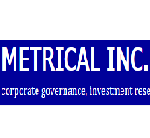Executive Summary
More than a quarter of assets under management (AUM) worldwide are invested in “sustainable” strategies, strategies that consider environmental, social, and governance (ESG) factors in pursuit of financial sustainability and/or environmental or social sustainability. Investors – both individual and institutional and at all wealth levels – are increasingly interested in integrating these strategies into their financial plans and investment portfolios, and asset managers and global financial institutions are embracing the approach and expanding related services and product offerings.
Interest in sustainable investing and sustainably invested AUM are growing rapidly in Japan. But despite this enthusiasm and growth, few mainstream investors, financial advisors, and investment consultants in Japan are embracing the practice.







